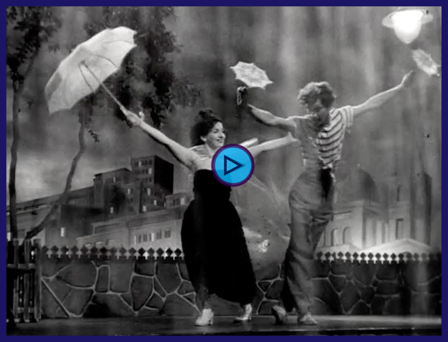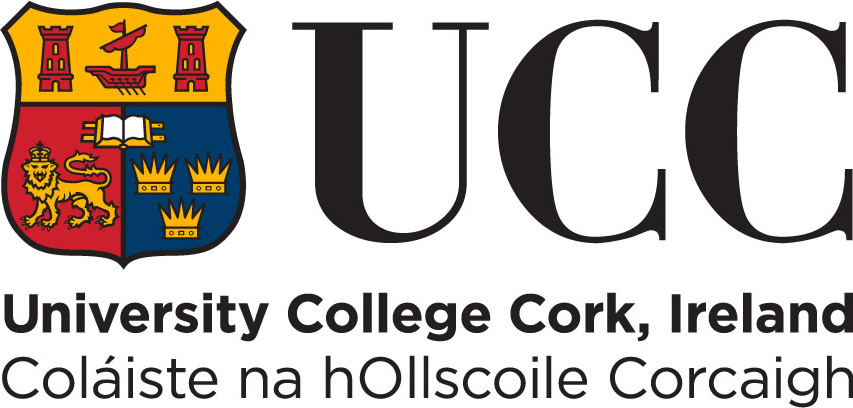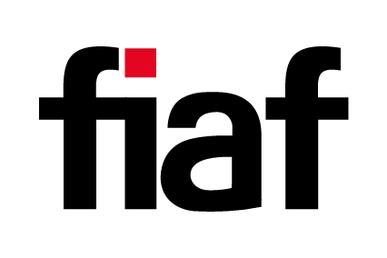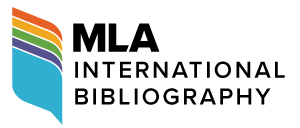Chanchadas and Intermediality: On the Musical Numbers of Aviso aos navegantes (Watson Macedo, 1950)
Flávia Cesarino Costa and John Gibbs
Creator’s statement
This audiovisual essay investigates the intermedial nature of Brazilian film comedies produced during the 1940s and 50s by exploring the musical numbers of Aviso aos navegantes (Calling All Sailors, Watson Macedo, 1950).
Brazilian cinema of this period is a privileged arena of different media strategies. Its “mixed” style is informed by Hollywood cinema but also by the domestic influence of radio, Carnival, and by the local forms of comic staging of the teatro de revista (the Brazilian equivalent of music hall or vaudeville). Of particular interest in this regard are the chanchadas, a body of films made between the mid-1930s and the early 1960s, that presented musical performances intertwined with comic situations, slender narrative lines and strong connections with the world of Carnival. Our aim is to show how the relationships between the different forms of cultural production in 1950s Brazil can be identified in a specific chanchada, opening a dialogue between musical performances on stage, over the radio, at Carnival and on screen.
The essay also examines similarities and differences between chanchadas and the Hollywood musical comedy tradition. One area explored is integration, both in the sense in which it is often used in film studies, to discuss the relationship between the numbers and the narrative, and in reflecting on whether the different elements which feed into the numbers of Aviso aos navegantes are seamlessly combined in the film. Despite the huge popular success of his films, Watson Macedo was considered by many as the most “Americanised” of the directors of that period, adhering less to the critical mechanisms of parody than was the case with his contemporaries. However, if we pay attention to Macedo’s musical numbers, it is evident that these performances are not imperfect copies of Hollywood originals, but have a logic of their own.
This audiovisual essay complements Flávia Cesarino Costa’s other contribution to this issue of Alphaville, the article “Building an Integrated History of Musical Numbers in Brazilian Chanchadas”, by exploring related ideas in the context of a single film. As well as the interest of the video essay’s own exploration and argument, the pairing of essays—traditional and videographic—enables readers of this issue to pursue their thinking about chanchadas and intermediality with specific audiovisual material in front of them.
Acknowledgement
This audiovisual essay, and the collaboration that made it possible, result from the AHRC/FAPESP-funded project “Towards an Intermedial History of Brazilian Cinema: Exploring Intermediality as a Historiographic Method” (IntermIdia). We are grateful to our colleagues at the Federal University of São Carlos and the University of Reading, and to the funding bodies which have supported this work.
Reference
1. Aviso aos navegantes [Calling All Sailors]. Directed by Watson Macedo, Atlântida Cinematográfica, 1950.
Suggested Citations
Costa, Flávia Cesarino, and John Gibbs. “Chanchadas and Intermediality: On the Musical Numbers of Aviso aos navegantes (Watson Macedo, 1950).” Video essay. Alphaville: Journal of Film and Screen Media, no. 19, 2020, vimeo.com/430520955.
Costa, Flávia Cesarino, and John Gibbs. “Chanchadas and Intermediality: On the Musical Numbers of Aviso aos navegantes (Watson Macedo, 1950).” Creator’s statement. Alphaville: Journal of Film and Screen Media, no. 19, 2020, pp. 28–30, https://doi.org/10.33178/alpha.19.03.
Flávia Cesarino Costa is a professor of Film History and Theory in the Department of Art and Communication at Federal University of São Carlos, Brazil. She has a PhD in Semiotics from the Catholic University of São Paulo and is the author of O primeiro cinema: espetáculo, narração, domesticação [Early Cinema: Spectacle, Narration, Domestication] (2000). As a Co-Investigator for the Project “Towards an Intermedial History of Brazilian Cinema: Exploring Intermediality as a Historiographic Method”, she currently researches Brazilian cinema and its connections with other media until the 1950s.
John Gibbs is Professor of Film at the University of Reading, and was also a Co-I on the AHRC/FAPESP-funded IntermIdia Project. His publications include Mise-en-scène: Film Style and Interpretation (2002), The Long Take: Critical Approaches (2017, coedited with Douglas Pye) and a number of audiovisual essays (https://vimeo.com/profjohngibbs).










